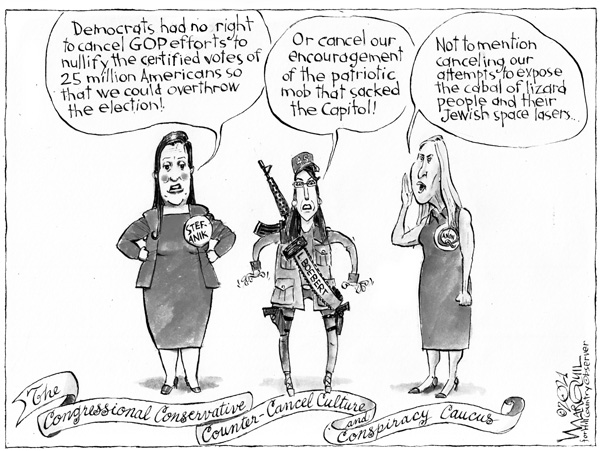Editorial February-March 2021
E D I T O R I A L
For democracy’s sake, stick to what’s real
Daniel Patrick Moynihan, the longtime U.S. senator from New York, was fond of saying in various iterations that people are entitled to their own opinions, but not to their own facts.
Moynihan, who died in 2003, wasn’t the first person to use that line, but it neatly encapsulated the standard of political discourse in the United States of the 20th century.
Yes, there were politicians, including Moynihan himself, who chose to highlight constellations of facts that supported the policies they favored – and to dismiss or gloss over the facts that didn’t. But for most of the U.S. history, our ideal of democratic self-government has been based on the expectation that we could make rational decisions based on widely agreed-upon facts.
That concept reached its apex in the last century, when most people gleaned their information from daily newspapers and a handful of broadcast networks whose journalists saw their mission as ferreting out the facts, delivering them without bias and sorting through the competing claims of our political leaders.
Many of those legacy news organizations are still with us, and their standards are just as high, even if their budgets for reporting and editing have shrunk. But the past three decades have seen the rise of cable channels that blur the lines between opinion and fact and shape their news coverage to cater to their viewers’ politics. And of course, anyone today can set up a website or Facebook page and begin spreading “information” from their living room.
So now we have large numbers of people who believe that Covid-19 isn’t real, that Donald Trump won re-election in a landslide, that school shootings were really staged by gun-control advocates, and so on.
And we have politicians like our own Elise Stefanik, the northern New York congresswoman who spent weeks feeding the baseless notion that massive election fraud had cost Trump his re-election. Stefanik, R-Schuylerville, rarely deigns to return calls from newspapers in her district, but from Election Day onward she found time to appear on conservative cable channels like Newsmax, where she talked up election irregularities while refusing to say who’d won the presidential election – long after it became clear that Joe Biden had.
Even after a mob of Trump supporters stormed the Capitol on Jan. 6, enraged by the fiction that the election had been stolen from him, Stefanik went ahead with her previously announced plans to object to the slates of electors from some states Biden had won. Stefanik insisted she had “serious questions” about the election results.
By then, the votes had been counted, recounted and certified by state election officials of both parties. And the questions raised by Stefanik had already been taken to court in some of the five dozen legal challenges brought by the Trump campaign. Judges, whose actions have to be based on facts and evidence, rejected all of those claims.
In the debate over certifying the electoral vote, some of Trump’s allies called for a congressional audit of the election results. An audit, they said, would show respect for the many voters who were upset by the election results. Sen. Mitt Romney, R-Utah, had a better idea: The best way to show respect for those voters, he said, was to tell them the truth – that Biden had won, and Trump had lost.
If we are to preserve our democratic self-government in the years ahead, we need to restore our political discourse to one that’s based on what we know as fact, not what we wish were true.


